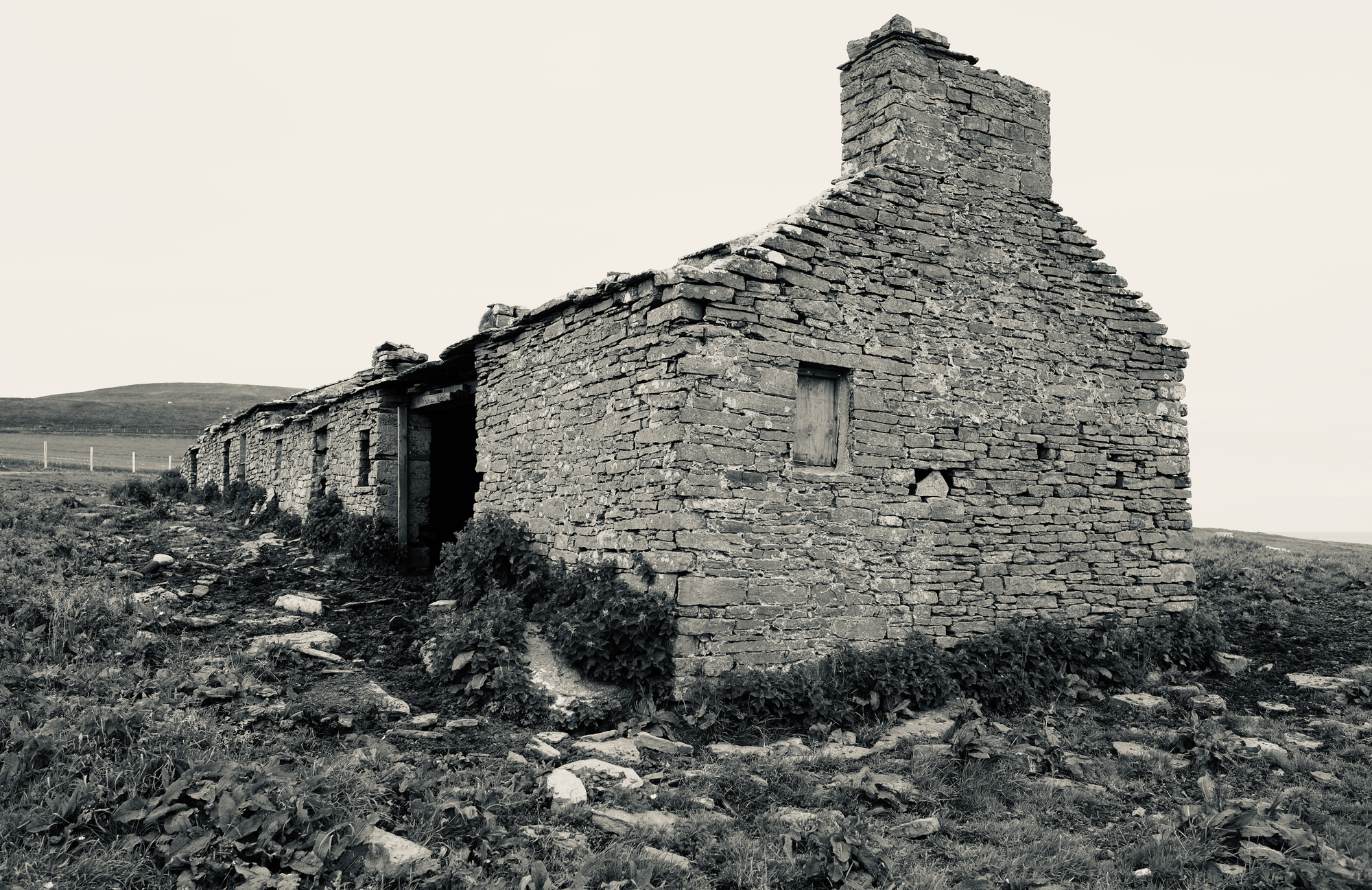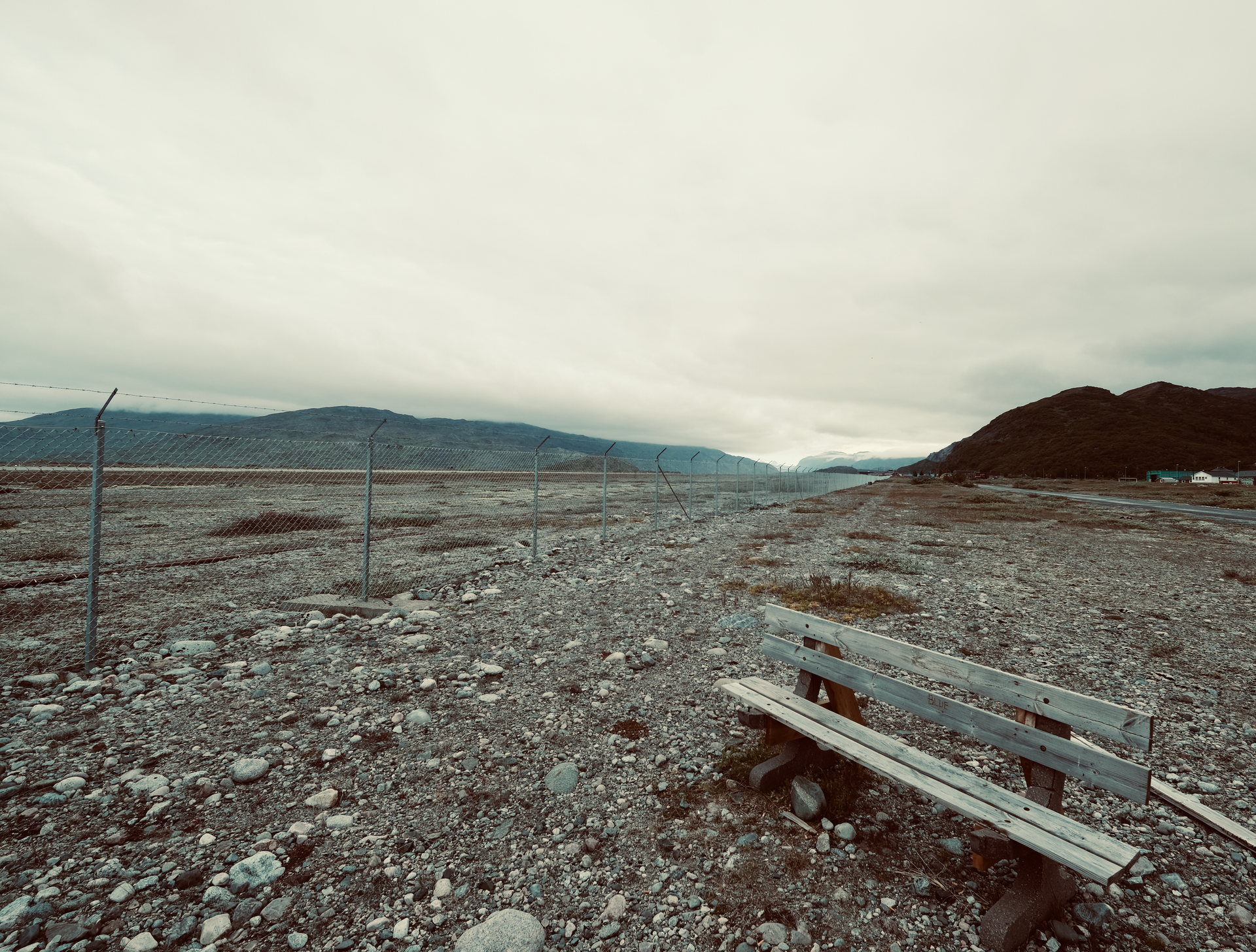beloved be the one who sits down
César Vallejo
Some years ago, I started off on a sequence of journeys around the North Atlantic seaboard, island-hopping from mainland Britain to Orkney and Shetland, then to the Faroe Islands, Iceland, Greenland, Labrador, Newfoundland, Nova Scotia, and so on to America, in pursuit of an idea which, in truth, I could have pursued almost anywhere: the idea of settlement.
The journeys themselves I had wanted to take since I was a restive young man in the 1990s; by the time I finally set off, I was long-settled with a family, a house, a garden, and the settled world I had been born into—the post-war world of European Union and Pax Americana—had begun to wobble out of kilter. The North Atlantic seaboard was no longer a gateway to the hyperborean regions, to Arctic wastes of churning grey sea and ice, to the semi-land of narwhal, walrus and musk ox in which, foolish youth, I might find or prove myself; it was no longer an idiosyncratic route to the New World, along which restless feet might dance. It revealed itself rather as a string of stone settlements, clinging to the edge of the northernmost settleable limit: ancient and evolved and frequently broken down places which might teach me something about settlement itself.

Settlement, I had come to believe (admittedly, from deep within my own) was a universal condition of life. I saw it everywhere: from the dust settling on my desk, to a bird settled on a bobbing branch, to the words I was settling in place on a page, fixing ideas in place; and so on in ever greater wheels and arcs of settlement, from the covenants of biblical time binding nomadic folk to the tilling of a promised land, to the entropic throb of the universe. Everything, everywhere, was intent on slowly coming to rest.
The human species, once involved in complex wandering patterns, had itself begun to settle ten thousand years ago, had developed storage and agriculture, and started to accumulate surpluses which anchored it in place. Still now, each of us in our own lives comes, one way or another, to settle. To integrate, to a greater or lesser extent, in the group. Ours, it follows, is a contracted destiny, like that of those old Norse gods whose power was at once defined and circumscribed by the binding settlements carved in runes on their spear hafts. Our freedom, as much as our lack of it, is written into the stones of our settlement.
Thus, anyway, I hypothesised.
Which only leaves a slim remainder to account for: our irrepressible restlessness. Pascal thought we were restless because we needed to seek distraction from the thought of mortality which inevitably creeps in whenever we are left to sit and think, alone. Others—Bruce Chatwin, for example–have theorised that we possess a deep, atavistic memory of the movement which preceded our settlement. We were once footloose, light-touch people. We tripped gracefully over the land and when we died our footprints blew away, and that was that. And now, at some deep point in us, we still yearn to move when we sense the seasons change, sense the sudden bleak absence of what made this place habitable and recognise that, to be fully human, we must be, for a spell, elsewhere.
Either way, our tendency to come to rest is balanced or opposed by an instinct for movement, for emancipation. This might find expression in actual movement, in travel. Or it might find expression in the drift of our ideas, our curiosity. Neither fully liberates us from our settlement; both inform it.
In any case, sensing a little restlessness in myself, I thought that I would sit down to write something about the enabling madness of settlement. And about some journeys I took, so to speak, around my own settlement. Because I had a further hypothesis, a hunch, an inkling of a suspicion: that somewhere, lodged between restlessness on the one hand and the long sleep of settlement (a sleep which produces monsters) on the other, there might lie an elusive tract of land, a mythical island perhaps, a square yard of space on which you might, in a melding of settlement and unsettlement, dance your own particular unchoreographed dance of freedom and belonging.
To repeat, I could have started my inquiries almost anywhere. But for some reason, I started, here...
